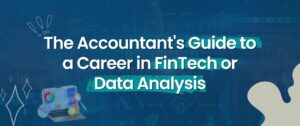
Introduction – Breaking the Age Barrier in Tech

If you’ve ever thought, “I wish I could move into tech, but I’m too old now,” you’re not alone. Thousands of people hesitate to take their first step into the technology industry because of this fear. The truth is, the idea that tech careers are only for the young is one of the biggest myths in modern work culture.
Technology is not reserved for 20-year-old coding prodigies or Silicon Valley entrepreneurs. It is a field built on creativity, problem-solving, and innovation—qualities that don’t diminish with age. In fact, many people in their 30s, 40s, and even 50s are successfully building careers in software development, data analysis, cybersecurity, and beyond.
So, let’s bust the myth together.
Why This Myth Exists
The stereotype of “young tech geniuses”
When most people think about tech, they imagine stories of Mark Zuckerberg launching Facebook at 19 or Bill Gates dropping out of college to build Microsoft. These examples are inspiring, but they create a false impression: that if you didn’t start coding at 12, you’ve already missed your chance.
Media’s influence on age in tech
TV shows, movies, and news stories often highlight young, hoodie-wearing coders working late nights. This stereotype overshadows the reality that many professionals find success in tech after years of experience in other fields.
Fear of being outdated
Technology moves quickly, and it’s normal to feel like you’ll never catch up. But adaptability—not age—is the real skill that matters. If you’re willing to learn, you’re already ahead of the curve.
The Truth About Age and Tech Careers
Age brings unique strengths
You may not be the youngest in the room, but you bring something more powerful—experience. Years of working in any industry sharpen your communication, leadership, and problem-solving abilities. These skills make you an asset to tech teams.
Tech is about problem-solving, not age
At its core, technology is simply about solving problems. Whether you’re debugging code or designing an app, the ability to think critically is far more important than how old you are.
Companies value diverse perspectives
A team made up only of 20-year-olds may lack the depth of perspective that comes with age and experience. Today, more companies recognize the power of diversity—including age diversity—because it leads to stronger innovation.
Success Stories of Late-Career Switchers
Real people prove every day that it’s never too late.
From teacher to software developer
Many educators transition into software development. Why? Because teaching sharpens skills like communication, patience, and structured problem-solving—all of which are vital in coding.
From accountant to data analyst
Accountants often excel in data science and analytics. Their comfort with numbers, patterns, and accuracy gives them an edge when analyzing business data.
Entrepreneurs who started late
Some entrepreneurs didn’t start their tech ventures until their 40s or 50s—and built successful startups. Their advantage? Years of business acumen and industry knowledge they could apply to new tech solutions.
The Skills That Matter More Than Age
Continuous learning and adaptability
In tech, change is constant. Those who succeed are not necessarily the youngest, but those who never stop learning.
Problem-solving mindset
Technology thrives on creativity. If you enjoy figuring out how to make things better, you’re already aligned with what tech careers require.
Communication and teamwork
Tech is never a one-person job. Your ability to collaborate, mentor, or lead can be just as valuable as technical knowledge.
Why Tech is a Great Choice at Any Age
High demand for skilled professionals
The demand for skilled tech talent is greater than the supply. Companies need more developers, analysts, and security experts than ever before—meaning opportunities are wide open.
Flexible career paths
Tech is not one narrow road. You could become a front-end web developer, UX designer, project manager, or data scientist. The variety of paths makes it easier to find something that matches your strengths.
Remote work opportunities
With remote jobs on the rise, tech careers also provide flexibility that many mid-career professionals crave.
Common Challenges Older Beginners Face
Fear of starting over
It’s daunting to feel like a beginner again after years of expertise in another field. But remember—you’re not starting from scratch; you’re bringing valuable skills into a new space.
Imposter syndrome
Many older beginners feel like they don’t belong in tech. But even young developers experience imposter syndrome. It’s a shared part of the journey, not a sign you don’t belong.
Tech jargon overload
The acronyms and technical terms can feel overwhelming. But with consistent practice, they become as familiar as any workplace terminology you’ve learned before.
Practical Tips for Starting a Tech Career Later in Life
- Choose the right field – Pick an area that excites you. Love design? Explore UX/UI. Good with numbers? Try data analysis.
- Build a solid learning plan – Set realistic goals and track your progress.
- Network and connect with mentors – Surround yourself with people who can guide you.
- Work on real-world projects – Build a portfolio with projects that prove your skills.
Learning Resources That Make a Difference
- Online courses and coding bootcamps – Short, intensive programs designed to get you job-ready.
- Free communities and forums – Places like GitHub, Reddit, or Stack Overflow connect you with professionals worldwide.
- Hands-on projects and internships – Experience matters. Even volunteering on projects can boost your profile.
How to Showcase Your Experience
- Leverage transferable skills – Your previous career gave you strengths that can set you apart.
- Highlight problem-solving abilities – Show employers how you’ve tackled real challenges before.
- Use a portfolio – A collection of projects is often more powerful than a resume alone.
Why Employers Are More Open to Diverse Ages Now
The industry is shifting. Employers care more about what you can do than how old you are. Skills, creativity, and teamwork are the real measures of success. Many companies now actively embrace professionals who bring a balance of technical and life experience.
Busting Common Misconceptions About Tech Careers
- You need to be a math genius – Wrong. Most roles rely more on logic than advanced math.
- Tech is only for coders – Project managers, designers, and analysts play huge roles too.
- Learning takes decades – With focused effort, you can build job-ready skills in under a year.
The Role of Passion and Persistence
Curiosity and persistence matter more than anything else. Progress in tech isn’t about giant leaps—it’s about steady, small steps that add up over time.
Final Words – Age is Just a Number in Tech
Switching into tech later in life is not about “catching up”—it’s about opening new doors. Age is not a barrier; it’s an advantage. Your experience, your perspective, and your drive can make you exactly what the tech world needs right now.
Don’t wait for the perfect moment—start your tech journey today with Codeed Labs and unlock your full potential!
FAQs
1. Am I too old to learn programming at 40 or 50?
Not at all. Many professionals have successfully learned programming and launched careers at this stage of life.
2. How long does it take to start a tech career later in life?
With consistent effort, many people become job-ready in 6–12 months depending on their chosen path.
3. Do companies hire older beginners in tech?
Yes. Employers value maturity, leadership, and problem-solving as much as technical skills.
4. What’s the best entry point for older career switchers in tech?
Web development, UX/UI design, data analysis, and cybersecurity are excellent starting points.
5. Do I need a degree to switch into tech?
No. Bootcamps, certifications, and portfolios can often carry more weight than a traditional degree.
Table of Content
 5.0
5.0
Unlock your new design team today
Get a team of skilled professionals and all the benefits that come with top-grade in-house designers—for a flat fee.
Book a free call


